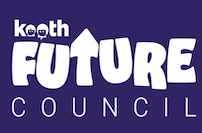Change can feel overwhelming, but you’re not alone in facing it.
At Kooth and Qwell, we recognise that change happens. One of the most powerful ways to support mental wellbeing through life’s ups and downs is by reflecting, tracking, and growing over time.
That’s why our goal-setting and mood-tracking tools are core parts of the Kooth and Qwell platforms, creating a sense of progress, routine and self-awareness. They’re also a key reason why many users return time and time again, with over 100,000 Journal Emojis having been shared by more than 56,000 individual service users.
Tools that support self-awareness and positive habits
Young people and adults can use these features to:
- •
Track their mood day to day, identifying patterns in how they’re feeling
- •
Set personalised goals like getting outside, managing sleep, or dealing with stress
- •
Receive helpful suggestions based on their activity and goals
These tools are completely anonymous and moderated. Our trained practitioners review entries and intervene if something concerning is flagged, ensuring that safety is never compromised.
And they’re not isolated; these tools sit alongside 1:1 support, self-help articles, and peer discussion boards, creating a joined-up, user-led experience. Self-help tools like these are shown to improve outcomes in early mental health interventions.
Research from UK-based early intervention studies shows that young people aged 14-24 who used self-monitoring tools like mood tracking experienced a significant reduction in depressive symptoms.
Support that’s always there, even when you’re not
As a professional, whether you’re a teacher, youth worker, healthcare provider or commissioner, you’ll know how important it is to encourage habits that stick.
These features provide a sense of continuity, even as young people move through education or services. They might only have one counselling session or check in for support once, but these tools are always there when they need them.
For teachers, especially, this can offer peace of mind, knowing that when students move on, there’s still somewhere safe, familiar, and effective that they can return to.
Why does this matter to you?
When young people are empowered to manage their wellbeing, the ripple effects are real, in attendance, behaviour, engagement and beyond. Tools like these aren’t just digital extras; they’re proven to inform care, reduce pressure on frontline services, and help people proactively manage their mental health.
In a world where change is constant, having something steady to come back to can make all the difference.





